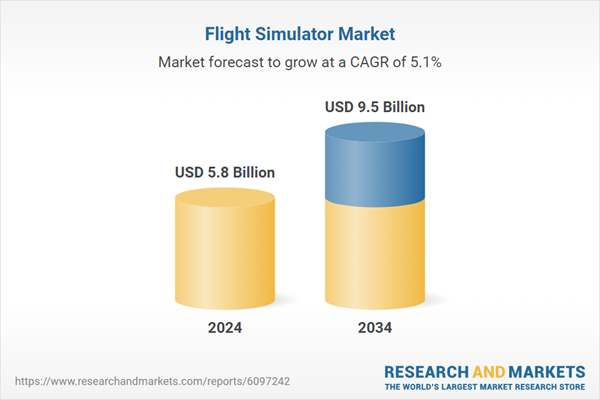Ongoing disruptions in international trade regulations have impacted the production of simulation hardware. Tariffs and import duties on electronic components and visual systems have caused cost fluctuations and supply delays. These challenges have prompted simulator manufacturers and major suppliers to adopt localized sourcing and establish regional manufacturing hubs. This approach not only reduces exposure to global trade uncertainties but also supports national aerospace objectives by bolstering domestic capabilities and ensuring consistent access to advanced technology.
By type, the market is segmented into full flight simulators, fixed base simulators, and flight training devices. Full flight simulators currently hold a share of 48.5% as of 2024, driven by their ability to deliver immersive training experiences through advanced motion systems and realistic cockpit replications. These systems comply with regulatory mandates set by major aviation authorities for commercial pilot training, making them a preferred option among flight training academies and airline operators.
The services segment is anticipated to expand at a CAGR of 6.1% during 2025-2034. As airlines seek to reduce operational costs and improve training uptime, demand for third-party maintenance, simulator upgrades, and flexible training-as-a-service models is gaining momentum. Subscription-based training packages and leasing options are especially popular among training centers aiming to stay updated without bearing heavy capital expenses.
Germany Flight Simulator Market is projected to grow at a CAGR of 5.9% through 2034. The country is channeling significant investments into modernizing its military training systems, with a focus on modular simulators that support both rotary and fixed-wing aircraft. As Germany strengthens its role in regional defense alliances, demand for advanced, interoperable training platforms is expected to rise steadily.
Key players in the Global Flight Simulator Industry include L3Harris Technologies, Boeing, and CAE Inc. To boost their global footprint, companies in the flight simulator market, such as CAE Inc., Boeing, and L3Harris Technologies, emphasize strategic acquisitions, joint ventures, and global training partnerships. They focus on expanding their simulation portfolios by integrating AI, VR, and cloud-based technologies to deliver scalable, real-time training solutions. Furthermore, several players diversify their services through subscription models and leasing programs to appeal to training centers and smaller airlines. With growing pressure to localize production due to trade restrictions, companies invest in regional manufacturing hubs and technology transfer initiatives across Europe, North America, and Asia-Pacific.
Comprehensive Market Analysis and Forecast
- Industry trends, key growth drivers, challenges, future opportunities, and regulatory landscape
- Competitive landscape with Porter’s Five Forces and PESTEL analysis
- Market size, segmentation, and regional forecasts
- In-depth company profiles, business strategies, financial insights, and SWOT analysis
This product will be delivered within 2-4 business days.
Table of Contents
Companies Mentioned
The companies featured in this Flight Simulator market report include:- AIRBUS
- AVT Simulation
- Boeing
- CAE Inc.
- Collins Aerospace
- Elite Simulation Solutions
- Havelsan Air Electronic Industry
- Indra Sistemas
- Kratos Defense & Security Solutions, Inc.
- L3Harris Technologies, Inc.
- Leonardo S.p.A.
- Lockheed Martin Corporation
- Saab AB
- Thales
- The DiSTI Corporation
Table Information
| Report Attribute | Details |
|---|---|
| No. of Pages | 180 |
| Published | May 2025 |
| Forecast Period | 2024 - 2034 |
| Estimated Market Value ( USD | $ 5.8 Billion |
| Forecasted Market Value ( USD | $ 9.5 Billion |
| Compound Annual Growth Rate | 5.1% |
| Regions Covered | Global |
| No. of Companies Mentioned | 16 |









